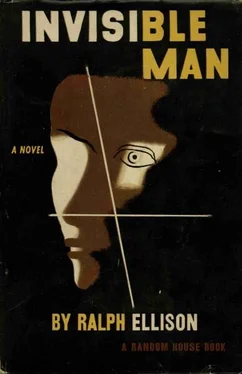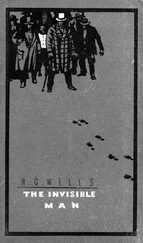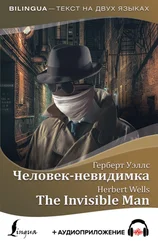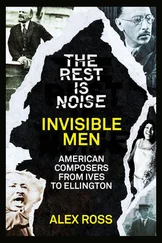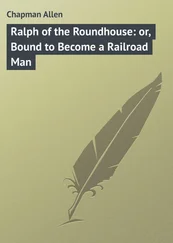Ralph Ellison - Invisible man
Здесь есть возможность читать онлайн «Ralph Ellison - Invisible man» весь текст электронной книги совершенно бесплатно (целиком полную версию без сокращений). В некоторых случаях можно слушать аудио, скачать через торрент в формате fb2 и присутствует краткое содержание. Год выпуска: 1995, ISBN: 1995, Издательство: Vintage Books, Жанр: Классическая проза, на английском языке. Описание произведения, (предисловие) а так же отзывы посетителей доступны на портале библиотеки ЛибКат.
- Название:Invisible man
- Автор:
- Издательство:Vintage Books
- Жанр:
- Год:1995
- ISBN:9780679732761
- Рейтинг книги:4 / 5. Голосов: 1
-
Избранное:Добавить в избранное
- Отзывы:
-
Ваша оценка:
- 80
- 1
- 2
- 3
- 4
- 5
Invisible man: краткое содержание, описание и аннотация
Предлагаем к чтению аннотацию, описание, краткое содержание или предисловие (зависит от того, что написал сам автор книги «Invisible man»). Если вы не нашли необходимую информацию о книге — напишите в комментариях, мы постараемся отыскать её.
The Waste Land,
Invisible man — читать онлайн бесплатно полную книгу (весь текст) целиком
Ниже представлен текст книги, разбитый по страницам. Система сохранения места последней прочитанной страницы, позволяет с удобством читать онлайн бесплатно книгу «Invisible man», без необходимости каждый раз заново искать на чём Вы остановились. Поставьте закладку, и сможете в любой момент перейти на страницу, на которой закончили чтение.
Интервал:
Закладка:
"Shake it up, you fellows," he said, "shake it up. We don't have all day."
Then the men came down with the chest and I saw the crowd give way sullenly, the men trudging through, grunting and putting the chest at the curb, then returning into the building without a glance to left or right.
"Look at that," a slender man near me said. "We ought to beat the hell out of those paddies!"
I looked silently into his face, taut and ashy in the cold, his eyes trained upon the men going up the steps.
"Sho, we ought to stop 'em," another man said, "but ain't that much nerve in the whole bunch."
"There's plenty nerve," the slender man said. "All they need is someone to set it off. All they need is a leader. You mean you don't have the nerve."
"Who me?" the man said. "Who me?"
"Yes, you."
"Just look," the old woman said, "just look," her face still turned toward mine. I turned away, edging closer to the two men.
"Who are those men?" I said, edging closer.
"Marshals or something. I don't give a damn who they is."
"Marshals, hell," another man said. "Those guys doing all the toting ain't nothing but trusties. Soon as they get through they'll lock 'em up again."
"I don't care who they are, they got no business putting these old folks out on the sidewalk."
"You mean they're putting them out of their apartment?" I said. "They can do that up here?"
"Man, where you from?" he said, swinging toward me.
"What does it look like they puttin' them out of, a Pullman car? They being evicted!"
I was embarrassed; others were turning to stare. I had never seen an eviction. Someone snickered.
"Where did he come from?"
A flash of heat went over me and J turned. "Look, friends," I said, hearing a hot edge coming into my voice. "I asked a civil question. If you don't care to answer, don't, but don't try to make me look ridiculous."
"Ridiculous? Hell, all scobos is ridiculous. Who the hell is you?"
"Never mind, I am who I am. Just don't beat up your gums at me," I said, throwing him a newly acquired phrase.
Just then one of the men came down the steps with an armful of articles, and I saw the old woman reach up, yelling, "Take your hands off my Bible!" And the crowd surged forward.
The white man's hot eyes swept the crowd. "Where, lady?" he said. "I don't see any Bible."
And I saw her snatch the Book from his arms, clutching it fiercely and sending forth a shriek. "They can come in your home and do what they want to you," she said. "Just come stomping in and jerk your life up by the roots! But this here's the last straw. They ain't going to bother with my Bible!"
The white man eyed the crowd. "Look, lady," he said, more to the rest of us than to her, "I don't want to do this, I have to do it. They sent me up here to do it. If it was left to me, you could stay here till hell freezes over ..."
"These white folks, Lord. These white folks," she moaned, her eyes turned toward the sky, as an old man pushed past me and went to her.
"Hon, Hon," he said, placing his hand on her shoulder. "It's the agent, not these gentlemen. He's the one; He says it's the bank, but you know he's the one. We've done business with him for over twenty years."
"Don't tell me," she said. "It's all the white folks, not just one. They all against us. Every stinking low-down one of them."
"She's right!" a hoarse voice said. "She's right! They all is!"
Something had been working fiercely inside me, and for a moment I had forgotten the rest of the crowd. Now I recognized a selfconsciousness about them, as though they, we, were ashamed to witness the eviction, as though we were all unwilling intruders upon some shameful event; and thus we were careful not to touch or stare too hard at the effects that lined the curb; for we were witnesses of what we did not wish to see, though curious, fascinated, despite our shame, and through it all the old female, mind-plunging crying.
I looked at the old people, feeling my eyes burn, my throat tighten. The old woman's sobbing was having a strange effect upon me-as when a child, seeing the tears of its parents, is moved by both fear and sympathy to cry. I turned away, feeling myself being drawn to the old couple by a warm, dark, rising whirpool of emotion which I feared. I was wary of what the sight of them crying there on the sidewalk was making me begin to feel. I wanted to leave, but was too ashamed to leave, was rapidly becoming too much a part of it to leave.
I turned aside and looked at the clutter of household objects which the two men continued to pile on the walk. And as the crowd pushed me I looked down to see looking out of an oval frame a portrait of the old couple when young, seeing the sad, stiff dignity of the faces there; feeling strange memories awakening that began an echoing in my head like that of a hysterical voice stuttering in a dark street. Seeing them look back at me as though even then in that nineteenth-century day they had expected little, and this with a grim, unillusioned pride that suddenly seemed to me both a reproach and a warning. My eyes fell upon a pair of crudely carved and polished bones, "knocking bones," used to accompany music at country dances, used in black-face minstrels; the flat ribs of a cow, a steer or sheep, flat bones that gave off a sound, when struck, like heavy castanets (had he been a minstrel?) or the wooden block of a set of drums. Pots and pots of green plants were lined in the dirty snow, certain to die of the cold; ivy, canna, a tomato plant. And in a basket I saw a straightening comb, switches of false hair, a curling iron, a card with silvery letters against a background of dark red velvet, reading "God Bless Our Home"; and scattered across the top of a chiffonier were nuggets of High John the Conqueror, the lucky stone; and as I watched the white men put down a basket in which I saw a whiskey bottle filled with rock candy and camphor, a small Ethiopian flag, a faded tintype of Abraham Lincoln, and the smiling image of a Hollywood star torn from a magazine. And on a pillow several badly cracked pieces of delicate china, a commemorative plate celebrating the St. Louis World Fair ... I stood in a kind of daze, looking at an old folded lace fan studded with jet and mother-of-pearl.
The crowd surged as the white men came back, knocking over a drawer that spilled its contents in the snow at my feet. I stooped and starting replacing the articles: a bent Masonic emblem, a set of tarnished cuff links, three brass rings, a dime pierced with a nail hole so as to be worn about the ankle on a string for luck, an ornate greeting card with the message "Grandma, I love you" in childish scrawl; another card with a picture of what looked like a white man in black-face seated in the door of a cabin strumming a banjo beneath a bar of music and the lyric "Going back to my old cabin home"; a useless inhalant, a string of bright glass beads with a tarnished clasp, a rabbit foot, a celluloid baseball scoring card shaped like a catcher's mitt, registering a game won or lost years ago; an old breast pump with rubber bulb yellowed with age, a worn baby shoe and a dusty lock of infant hair tied with a faded and crumpled blue ribbon. I felt nauseated. In my hand I held three lapsed life insurance policies with perforated seals stamped "Void"; a yellowing newspaper portrait of a huge black man with the caption: MARCUS GARVEY DEPORTED.
I turned away, bending and searching the dirty snow for anything missed by my eyes, and my fingers closed upon something resting in a frozen footstep: a fragile paper, coming apart with age, written in black ink grown yellow. I read: FREE PAPERS. Be it known to all men that my negro, Primus Provo, has been freed by me this sixth day of August, 1859. Signed: John Samuels Macon ... I folded it quickly, blotting out the single drop of melted snow which glistened on the yellowed page, and dropped it back into the drawer. My hands were trembling, my breath rasping as if I had run a long distance or come upon a coiled snake in a busy street. It has been longer than that, further removed in time, I told myself, and yet I knew that it hadn't been. I replaced the drawer in the chest and pushed drunkenly to the curb.
Читать дальшеИнтервал:
Закладка:
Похожие книги на «Invisible man»
Представляем Вашему вниманию похожие книги на «Invisible man» списком для выбора. Мы отобрали схожую по названию и смыслу литературу в надежде предоставить читателям больше вариантов отыскать новые, интересные, ещё непрочитанные произведения.
Обсуждение, отзывы о книге «Invisible man» и просто собственные мнения читателей. Оставьте ваши комментарии, напишите, что Вы думаете о произведении, его смысле или главных героях. Укажите что конкретно понравилось, а что нет, и почему Вы так считаете.
